The East African Community (EAC) Secretariat has called on EAC Partner States to educate their citizens on protecting themselves and preventing the spread of Mpox. This follows reports from the World Health Organization (WHO) that Burundi and the Democratic Republic of Congo (DRC) are experiencing an outbreak of the viral Mpox disease. Read more
El Niño Rains Cause Devastation in Eastern Africa
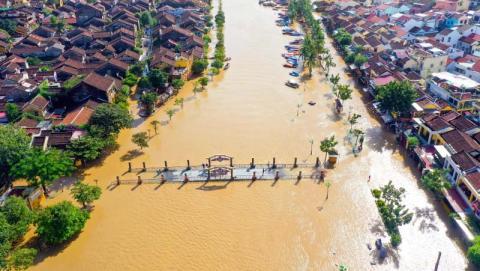
Between March and May 2024, Eastern Africa experienced devastating heavy rains and widespread flooding, driven by El Niño. Known as the Long Rains, this period caused landslides, mudslides, and severe damage across the region. The effects were particularly harsh on women and children, who lost lives, homes, and farmland. Agriculture, an industry where women play a crucial role, was severely impacted.
Women, often the primary caregivers, were especially affected. Their responsibilities for securing water, food, and healthcare for families became more difficult with the destruction of homes and displacement. Many women were forced into temporary shelters, where they faced increased risks of gender-based violence, including harassment and abuse.
The floods also triggered major public health crises, with clean water and sanitation systems compromised. Diseases such as malaria, cholera, and measles surged, posing serious health risks to pregnant women and children. Access to healthcare services became increasingly limited, further worsening maternal health issues.
To address health concerns during floods, the World Health Organization (WHO) recommends several protective measures. Communities need to be aware of evacuation routes and warning signals, with women, children, and people with disabilities given priority. Ensuring the availability of clean drinking water is critical, particularly for women responsible for water collection and food preparation. Good hygienic practices and safe food preparation techniques are essential to reduce the risk of disease outbreaks, while avoiding flooded areas and using mosquito repellents help minimize exposure to hazards like drowning or mosquito-borne diseases, including malaria.
Looking ahead, proactive measures are vital to reduce the impact of future disasters, which are becoming more frequent due to climate change. Monitoring weather forecasts can help communities prepare, particularly women, who often lack access to timely information. Safe shelters and preparedness kits with essential supplies, such as flashlights, cash, and first aid, can empower women to protect their families. Investments in infrastructure, agriculture, clean water, healthcare, and emergency systems are necessary to build resilience. Designing buildings to withstand extreme weather and relocating from flood-prone areas can offer additional protection, especially for women who manage household resources.
By prioritizing gender-sensitive responses and addressing the specific needs of women and vulnerable groups, Eastern Africa can better prepare for future natural disasters, fostering more resilient and inclusive communities. More details on this Link
South Sudan closes schools due to extreme heatwave
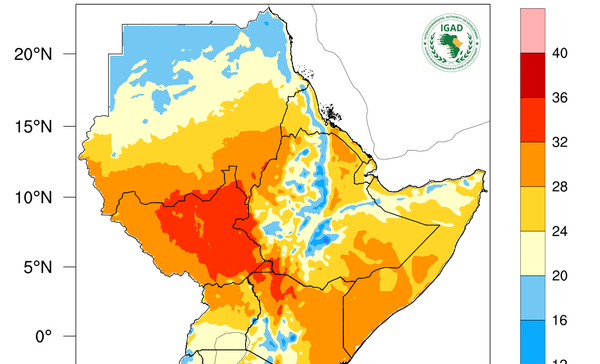
South Sudan’s government has ordered all of the nation’s schools to close indefinitely beginning Monday, March 18, because of a heat wave that could see temperatures rise to as high as 45C (113F) sweeping across eastern Africa. The government has also instructed parents not to allow children to play outdoors and asked them to report any signs of heat exhaustion or heatstroke.
In a joint statement by the Health and Education ministries, the authorities warned that any school found open would have its registration withdrawn. “The Ministry of Health and the Ministry of Environment and Forestry will continue to monitor the situation and inform the public accordingly,” the statement read.
According to the Environment ministry, the capital Juba and most parts of South Sudan are experiencing a heat wave with temperatures forecast to rise to as high as 45 degrees Celsius. This week temperatures could rise to 41 degrees Celsius. The extreme hot weather is expected to last at least two weeks. Earlier the Health ministry had issued an advisory stating that “extended periods of high day and night-time temperatures create cumulative physiological stress on the human body”.
This, the ministry said, exacerbates the top causes of death globally, including respiratory and cardiovascular diseases, diabetes mellitus and renal disease. “There are already cases of deaths related to excessive heat being reported,” authorities said in a statement on Saturday. The Health ministry advised people to reduce the heat load inside the apartment or house, close windows and shutters especially those facing the sun during the day and turn off artificial lighting and as many electrical devices as possible.
The residents are also required to hang shades, draperies, awnings or louvers on windows that receive morning or afternoon sun, and hang wet towels to cool down the room air. “Electric fans may provide relief, but when the temperature is above 35 degrees centigrade, may not prevent heat-related illness. It is important to drink fluids,” the advisory says.
Those living in air-conditioned houses were advised to close the doors and windows and conserve electricity not needed to keep them cool, to ensure that power remains available and reduce the chance of a community-wide outage. For beddings, the ministry urged use of light bed linen and sheets, and no cushions to avoid heat accumulation. People were advised to drink water regularly and avoid alcohol and too much caffeine and sugar, which are dehydrating. They were also urged to eat small but frequent meals and to avoid foods that are high in protein.
The ministry urged people to be their brothers’ keepers, checking in especially on family, friends, and neighbours who spend much of their time alone. Vulnerable people might need assistance on hot days, it said. “If anyone you know is at risk, help him or her to get advice and support. Elderly or sick people living alone should be visited at least daily. If a person is taking medication, ask the treating doctor how it can influence thermoregulation and the fluid balance,” the Health ministry advised.
Read more on WHO's How to stay safe during heatwaves on this Link
Call for assistance as floods threaten cross border trade
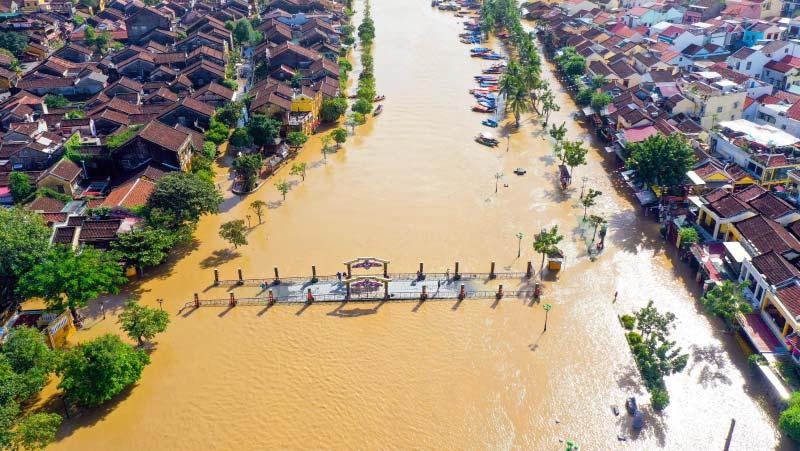
The onset of heavy rains throughout the EAC region and reports of flooding, and post flood effects have not spared the Nimule/Elegu border between South Sudan and Uganda. On 5th November 2023, unprecedented volume of water spread throughout the border areas, submerging the markets, parking areas and residential areas.
At Nimule/Elegu border, the main economic activities around the area is trade, ranging from transportation, food vending, bars, lodging, cross border trade in agricultural produce, animals, animal products and others. On a daily basis, cross border communities move on either side to access basic services like healthcare, education, social events and retail trade including accessing eating places.
The following key challenges are foreseen:
- Contamination of water sources and associated problems.
- Increase in malaria cases
- Loss of business
- Contamination and possible food poisoning
- Increased cost of living for the Border Officials and the community.
Read full report on this link
Eastern Africa to receive heavy rains
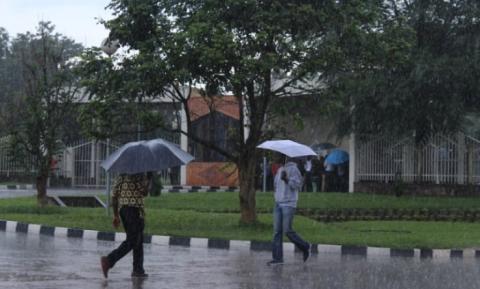
The long rainy season in the East African Community region from March to May, also known as the MAM rainy season, will receive above-average rainfall. This is good news for the region as this season contributes up to 60 per cent of the annual rainfall. With this above-average rainfall, it is hoped that the region will experience improved agricultural and hydrological conditions, regional climate centre predicts. Read more: Link
Tanzania reports Red Eyes outbreak
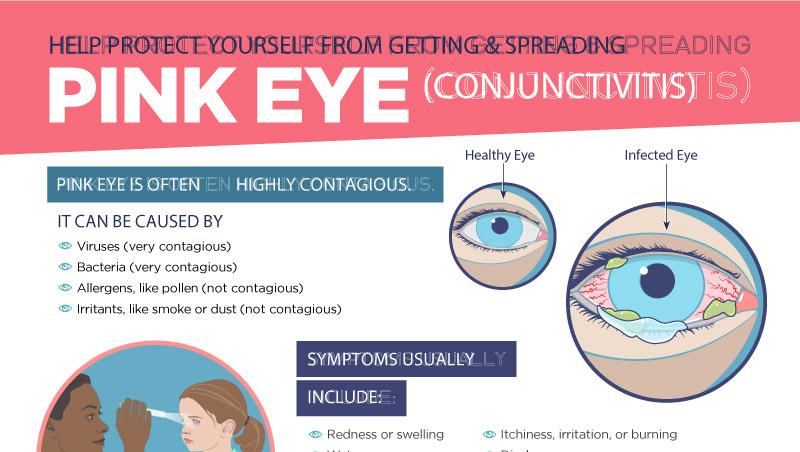
There is an outbreak of Red Eyes otherwise known scientifically as Viral Conjunctivitis. This has been reported in the country's regions of Dar es Salaam, Morogoro, Pwani and the capital city, Dodoma.
Viral Conjunctivitis is an Infection of the eye caused by a virus, which can be caused by a number of different viruses, such as adenoviruses. It is very contagious, and sometimes can result in large outbreaks depending on the virus.
Tanzania's Ministry of Health made the announcement on the outbreak on 15 January 2023, which is available on this link: https://twitter.com/wizara_afyatz/status/1746905306091708917?s=20
Symptoms of conjunctivitis can include:
- Pink or red colour in the white of the eye(s)
- Swelling of the conjunctiva (the thin layer that lines the white part of the eye and the inside of the eyelid) and/or eyelids
- Increased tear production
- Feeling like a foreign body is in the eye(s) or an urge to rub the eye(s)
- Itching, irritation, and/or burning
- Discharge (pus or mucus)
- Crusting of eyelids or lashes, especially in the morning
- Contact lenses that feel uncomfortable and/or do not stay in place on the eye
Viral Conjunctivitis can occur with symptoms of a cold, flu, or other respiratory infection. It usually begins in one eye and may spread to the other eye within days. Discharge from the eye is usually watery rather than thick.
For more details on causes, symptoms, treatment and transmission, please read here: https://www.cdc.gov/conjunctivitis/index.html
FAO, IGAD call for action on Rift Valley Fever in Eastern Africa
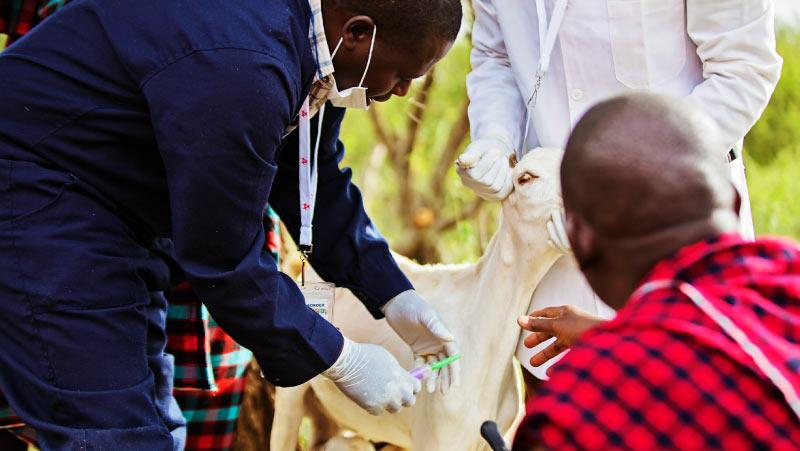
The FAO Emergency Prevention System has cautioned about the risk of RVF occurrence in East Africa both in animals and humans, due to favourable environmental conditions and through movement of potentially infected animals, underscoring the urgent need to ensure adequate preparedness for potential outbreak of RVF, through the One Health approach.
During the period of July–October 2023 and over the recent weeks, weter than-normal conditions occurred in the region, and particularly in Sudan, South Sudan and parts of Kenya, Uganda, Ethiopia, Djibouti, Somalia and United Republic of Tanzania. Flooding conditions persisted in the Sudd wetlands in northern South Sudan. These suitable environmental conditions for potential RVF vector amplification, abundance and distribution are forecasted to persist until January 2024 because of a strong El Niño predicted event that is expected to occur with a 75-85 percent chance. Extensive hotspots for RVF vector amplification are predicted in Sudan, South Sudan, Kenya, United Republic of Tanzania, Ethiopia, Uganda, Somalia, and Rwanda.
Read more on this link
Fertility experts warn against consumption of large fish

A study by the Harvard Medical School reveals that deep sea fish tend to contain the highest levels of mercury as a result of consuming small fish. The study warns consumers against eating large fish such as shark, swordfish, tilefish and King Mackerel. According to the Secretary General of International Federation of Fertility Societies Oladapo Ashiru, large fish have been found to contain heavy metals that can lead to infertility.
Read more: https://nation.africa/kenya/health/fertility-experts-warn-against-consumption-of-large-fish-4408700
Ensure safe food and water consumption, consider vaccination
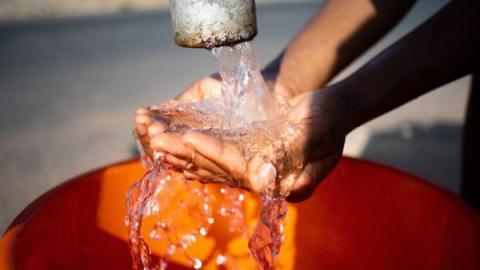
High aflatoxin levels: Uganda set to destroy 1,700 tones of maize

Tests carried out by East African Community (EAC) standards experts have confirmed the presence of high aflatoxin levels in Ugandan maize earlier rejected by South Sudan authorities. Aflatoxins are a group of naturally occurring mycotoxins (toxic compounds produced by molds) that are primarily produced by two species of fungi: Aspergillus flavus and Aspergillus parasiticus. These molds can grow on crops such as peanuts, maize (corn), cottonseed, and tree nuts, particularly in warm and humid climates. Aflatoxins are potent carcinogens, and long-term exposure to them can have serious health implications for humans and animals.
Read more: https://www.monitor.co.ug/uganda/news/national/uganda-set-to-destroy-1-700-tonnes-of-maize-4408556
